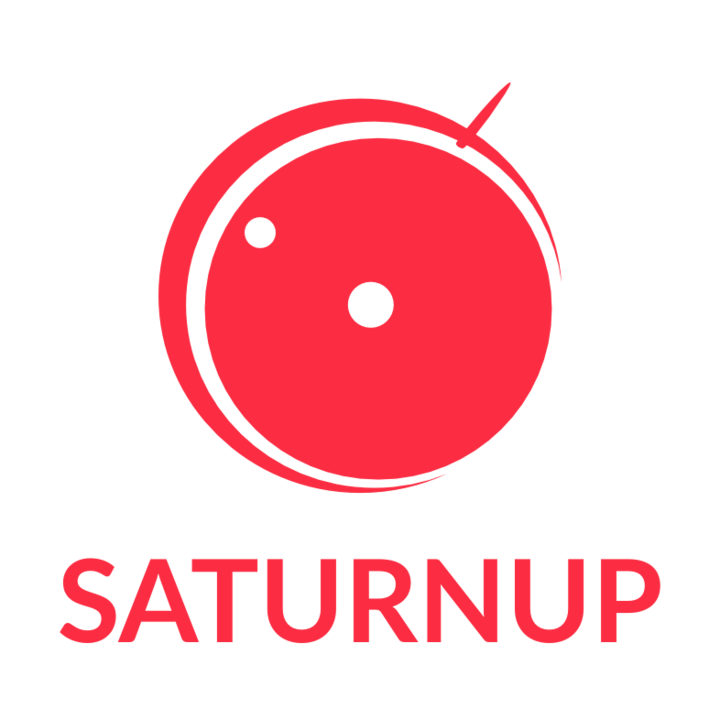What’s the one thing that frustrates mobile-gamers the most? According to the student founders running a budding new U-M startup called Saturnup, it’s unwanted, unavoidable, pop-up advertisements that appear right in the middle of the game. In today’s mobile game application experience, users are forced to watch sponsored-videos, blasted by distracting banners and bombarded with “click here” gimmicks. The founders of Saturnup have been working tirelessly on a solution to this advertising nightmare that not only alleviates the interruptions for the consumer, but also provides advertisers higher quality user-interactions for their money.
Saturnup joined the summer 2015 cohort at TechArb, a student-only accelerator run jointly by The Center for Entrepreneurship and the Zell Lurie Institute for Entrepreneurial Studies, and in just a few months has developeda product ready to test. The Center for Entrepreneurship has identified this startup as one of the top performing teams coming out of the summer cohort due to the students’ determination and tangible progress. As a result, Saturnup has been awarded $5,000 to support the team in reaching their next significant milestone – acquiring customers to test the software. The funding is made possible through a generous gift to CFE from University of Michigan alumni family, Dr. Thomas E. and Betsy Brady. Dr. Thomas Brady received his PhD in Materials Science from the College of Engineering and founded Plastics Technologies, which he and his wife Mrs. Brady run.
So, what is the magical software that will revolutionize the way companies advertise in mobile games? The CFE sat down with founder, Howard Sobel, an incoming senior studying business administration at the Ross School of Business, to learn about Saturnup, his entrepreneurial experiences at U-M and future plans for the $5,000 award. Saturnup’s other team members include John DeSilva, senior in Computer Science Engineering and Ittai Svidler, sophomore in Computer Science Engineering.
CFE: What is Saturnup and how did you come up with your business idea?
Howard Sobel: As millennials, we are always on our phones using apps and playing games. We personally felt frustrated by how annoying and disruptive in-game advertising has become and decided there has to be a better way for companies and gamers to interact. Our team came together when I met John in an entrepreneurship class. We worked really well together and had a lot of common goals for starting our own business. That’s when we started envisioning Saturnup. The software we’ve designed works by rewarding users for learning something about a brand. For example, at the beginning of a game, an ad could pop-up and offer a “life” or reward, like no advertisements for the rest of the game round, in exchange for answering a question about a brand. This way the user is learning something about the advertiser while being rewarded for it. We think it will be much more effective for advertisers because they will get valuable interactions, and it will take some clutter out of the mobile game experience for the user.
CFE: What is the current status of Saturnup? What are you working on right now?
HS: We’ve developed a collegiate-themed trivia game for Android and IOs that uses our style of advertisement, and we are launching it in a month so we can test how it works with real users. We are also working with a lot of marketers to develop something that they want and would pay for in the future. Basically, testing the product from both the user and advertiser perspective.
CFE: What are you planning on doing with the $5,000 award from the Brady family?
HS: We are using that money purely for customer acquisition. The goal is to attract developers to want to use our product because it provides them greater opportunity for profit. For example, they can get higher return on someone answering a question than just viewer impressions (current market). In order to get our product in front of more potential customers, and compete with well-established software that already exists, we will have to offset some costs. The Brady family and the Center for Entrepreneurship are supporting us at critical time and we can’t thank them enough.
CFE: What are some entrepreneurial resources at U-M that has helped your startup take off?
HS: The mentorship provided by TechArb has been indispensable, specifically the mentorship we’ve gotten from Tom Frank from CFE, Nancy Benovich Gilby from the School of Information and Josh Botkin from ZLI. Being able to work in a collaborative environment with other teams that are facing the same problems that we are has been extremely helpful and given us a sense of community.
CFE: What advice do you have for other student entrepreneurs?
HS: Don’t be afraid to ask for help and talk to everyone you can! If you are in school, use all of the resources that it can provide. I don’t think students realize how many opportunities and resources are right here in front of them, most free of any cost. That’s tremendous for startups with limited, well, everything. Also, if you are starting a technology company, build your team with a variety of talents. You’ll need people who understand business and people who are highly tech-savvy to develop the product. It can be really expensive and difficult to have a tech designed outside of your team.
CFE: Where will Saturnup be five years from now?
HS: Hopefully serving thousands of mobile gaming customers!
To learn more about Saturnup, visit their website saturnup.com or email Howard athosobel@umich.edu.

